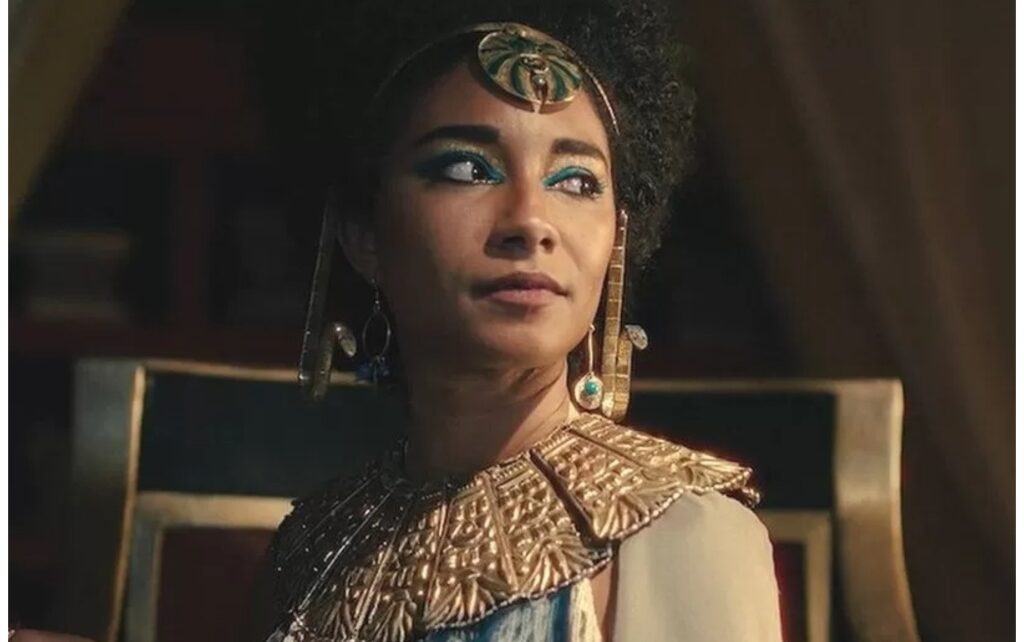Egypt’s Supreme Council Of Antiquities (SCA) has added its voice to the row over the portrayal of Cleopatra as a Black woman in Netflix’s upcoming docudrama Queen Cleopatra.
The casting of actress Adele James, who is of mixed heritage, as the iconic Ancient Egypt ruler has caused a furore in Egypt where the subject of Cleopatra’s ethnicity is a sensitive subject.
The show, which is executive produced and narrated by Jada Pinkett Smith, is due to launch on Netflix on May 10.
Related Story
Streaming Bill Regulating Netflix, Amazon And Co In Canada Becomes Law
The 160-year-old SCA, which is responsible for Egypt’s cultural heritage and all its archaeological sites, put out a press release on Thursday giving its reaction to the portrayal of Cleopatra with “African features and dark skin”.
“The Secretary General of the Supreme Council of Antiquities confirms that Queen Cleopatra had light skin and Hellenistic (Greek) features,” the body said in the statement posted on the website of Egypt’s Ministry of Culture and Antiquities.
The statement will likely add fuel to the backlash against the film, which prompted calls for Netflix to be banned and a petition bannered “Stop the Cleopatra Documentary on Netflix due to historical falsification”, which has garnered some 40,000 signatures.
SCA Secretary General Mostafa Waziri addressed the charges of “historical falsification” in the statement
“The appearance of the heroine is a falsification of Egyptian history and a blatant historical fallacy, especially since the film is classified as a documentary film and not a dramatic work, which requires those in charge of its production to investigate accuracy and rely on historical and scientific facts to ensure that history and civilizations are not falsified,” he said.
Wazari added that statues and depictions on coins of the queen pointed to her having Hellenistic features, and “fair skin, drawn nose and thin lips”.
He denied that the recent backlash in Egypt against the casting of James in the role of Cleopatra was due to racist attitudes towards people of African origin.
“The rejection experienced by the film before it comes out is sparked out of defense of the history of Queen “Cleopatra VII”, which is an important and authentic part of the ancient history of Egypt, and far from any ethnic racism, with full respect for African civilizations and for our brothers in the African continent that brings us all together,” he said.
The producers of the show have expressed surprise at the reaction out of Egypt.
In a statement posted on the Netflix website on Wednesday, they emphasized that the show’s focus was on Cleopatra as a powerful woman, rather than the color of her skin.
“Working with leading historians and experts including Shelley Haley (Professor of Classics and African Studies, Hamilton College) and Dr. Sally-Ann Ashton (Cleopatra scholar), we explore Cleopatra’s story as a queen, strategist, ruler of formidable intellect as well as a woman whose heritage is the subject of great debate,” they said.
“Her ethnicity is not the focus of Queen Cleopatra, but we did intentionally decide to depict her of mixed ethnicity to reflect theories about Cleopatra’s possible Egyptian ancestry and the multicultural nature of ancient Egypt.”
Must Read Stories
Farewell, James Corden: How ‘The Late Late Show’ Host Said Goodbye To His CBS Show

WGA Reviews & Counters Latest AMPTP Offer As Potential Strike Deadline Moves Closer

Amazon Studios & Prime Video Hit; 8 Execs, Others Exit Fifth Season; Vice Media Cuts

Actress Wins UK Court Case Over Collapsed Film ‘A Patriot’; Exclusive Statement

Read More About:
Source: Read Full Article


